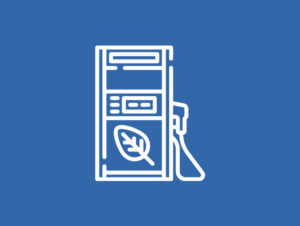Selders Engineering & Contracting

Our Purpose
Bioenergy has come to play an increasingly important role in reducing greenhouse gases in the environment and is embraced by the EU with the Fit for 55 package. Renewed attention for Baseload power and self-sufficiency of energy is a serious topic with the desire to minimize natural gas and coal consumption for our power and heating requirements. Specifically, the EU has set a goal to reduce emissions and climate change. By the year 2030, GHG emissions should be at least 55 % less than in 1990.
Circular Solutions
On site organic residue processing
Decentralized processing of food waste converted into a biofuel is contributing to both the energy transition and the circular economy.
Agri digester
The highest GHG reductions can be achieved when using agricultural residues especially manure as feedstock for renewable gas and replace natural gas.
Biomethane or Bio-LNG
Renewable Natural Gas (RNG), also known as CBG or biomethane, can be used as transportation fuel in vehicles running on compressed or Bio-LNG.
Fast Compositing
If waste is separated, we should benefit the potential and not allow that is mixed again with non-organics later in the waste chain..
ECO Bricks
With eco-bricks we recover plastics from households and landfills and use this as building block for the ‘ECO brick’ to construct building or pavers.
HEMP
Hemp, unlike corn and particularly sugarcane, can be grown in a wide range of geographic locations and climatic conditions.
Sustainable Protein
The FAO estimates that food production needs to increase by 70% by 2050 to feed the world’s growing population, with a big focus on higher quality protein diets in developing parts of the world.
Microalgae
Microalgae are photosynthetic micro-organisms capable of producing high valued nutritional products and/or food from inorganic substances such as CO2.
Project development

Financing and acquisition
For project developers who need support to finance their project(s) we offer services based on experience in the renewable energy sector for the last 20 years with financing and acquisition trajectories.

Fuel strategy
Our dedicated team works to ensure that your fuel procurement strategy is well-planned from project inception to daily operation.
Feedstock supply
Agri Biomass

In the European Union (EU), more than 11 mio hectares are dedicated to the cultivation of fruit trees, mainly olive orchards, grapevines, nut trees, apple and pear trees, stone fruit trees and citrus fruit trees.
Energy crops

We develop strategies for our customers utilizing producers that can offer certified energy crops like bamboo, miscanthus or other grasses in the form of chips or pellets for their usage.
Forest residue

Biomass usage for energy should not drive forest harvesting. We use co-products from timberland that is primarily for growing saw-timber. We use the parts of the tree that are too small for timber industry and residual chips from saw-milling processing. On average the biomass is worth less than 7% of the total harvest value, with no real alternative usage.
